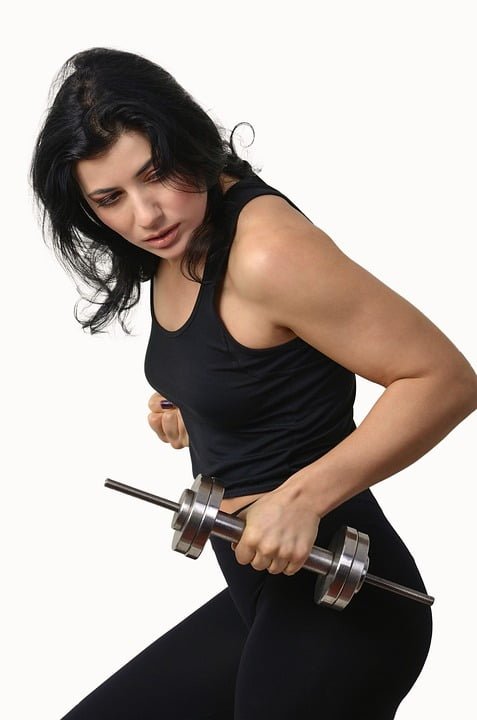
[ad_1]
Bodybuilding and Hormones
Welcome to a comprehensive guide to the fascinating world of bodybuilding and hormones. In this article, we will delve into the intricate relationship between bodybuilding and hormones, exploring the impact of hormones on muscle growth, recovery, and overall body composition. Whether you are a seasoned bodybuilder or just starting out on your fitness journey, understanding how hormones can influence your results is essential for achieving your desired physique.
Understanding Hormones in Bodybuilding
When it comes to bodybuilding, hormones play a crucial role in shaping the outcomes of your training efforts. Hormones act as chemical messengers in the body, communicating with various tissues and organs to regulate essential processes such as metabolism, growth, and repair. In the context of bodybuilding, certain hormones have garnered significant attention due to their profound impact on muscle growth, strength, and recovery. Let’s explore some of the key hormones that are of particular interest to bodybuilders.
The Role of Testosterone in Bodybuilding
Testosterone, often referred to as the “king of hormones” in the bodybuilding world, is a key player in muscle development and overall physique enhancement. This anabolic hormone is primarily produced in the testes in men and in smaller amounts in the ovaries in women. It promotes protein synthesis, leading to muscle growth, and also aids in the repair and recovery of muscle tissue following intense workouts. In addition, testosterone influences bone density, fat distribution, and red blood cell production, all of which contribute to an individual’s capacity for strength and endurance.
Growth Hormone and Its Impact on Muscle Growth
Growth hormone, also known as somatotropin, is another hormone that holds considerable significance in the realm of bodybuilding. Produced by the pituitary gland, growth hormone plays a pivotal role in stimulating growth and cellular regeneration. In the context of bodybuilding, it is revered for its ability to fuel muscle growth, enhance fat metabolism, and support the repair of muscle fibers. As such, optimizing growth hormone levels can be advantageous for individuals looking to maximize their muscle-building potential and improve their body composition.
The Influence of Insulin-like Growth Factor 1 (IGF-1)
Insulin-like Growth Factor 1 (IGF-1), a hormone structurally similar to insulin, is recognized for its anabolic properties and its ability to modulate the effects of growth hormone. IGF-1 exerts potent effects on muscle cells, promoting muscle hypertrophy and aiding in the repair of damaged muscle tissue. Moreover, it facilitates the uptake of nutrients and amino acids by muscle cells, further supporting muscle growth and recovery.
The Impact of Cortisol on Muscle Breakdown
While anabolic hormones such as testosterone and growth hormone are celebrated for their muscle-building effects, the role of cortisol, a catabolic hormone, cannot be overlooked in the context of bodybuilding. Produced by the adrenal glands in response to stress, cortisol can promote the breakdown of muscle tissue and inhibit protein synthesis, potentially compromising muscle growth and recovery. Managing cortisol levels through adequate recovery, stress reduction, and proper nutrition is crucial for maintaining an optimal anabolic environment for muscle development.
The Importance of Hormonal Balance in Bodybuilding
It’s important to recognize that hormonal balance is key to unlocking the full potential of your bodybuilding endeavors. An optimal hormonal environment, characterized by adequate levels of anabolic hormones and controlled levels of catabolic hormones, is conducive to muscle growth, strength gains, and overall physical performance. Strategies such as sound nutrition, targeted training, sufficient rest, and stress management can all contribute to maintaining hormonal equilibrium and fostering an environment that is favorable for bodybuilding.
FAQs
How do hormones affect muscle growth?
Hormones such as testosterone, growth hormone, and IGF-1 play pivotal roles in promoting muscle growth by stimulating protein synthesis, enhancing cellular repair, and facilitating nutrient uptake by muscle cells.
What is the impact of insulin on bodybuilding?
Insulin, a hormone responsible for regulating blood sugar levels, also plays a role in muscle growth by facilitating the uptake of glucose and amino acids by muscle cells, supporting their growth and recovery.
Can hormonal imbalances affect muscle development?
Yes, hormonal imbalances, characterized by deficiencies or excesses in key hormones, can impede muscle growth, recovery, and overall physical performance, underscoring the importance of maintaining hormonal equilibrium.
How can individuals optimize their hormone levels for bodybuilding?
Optimizing hormone levels for bodybuilding can be achieved through a combination of factors such as targeted nutrition, strategic supplementation, effective training, adequate rest, and stress management, all of which can positively influence hormonal balance and muscle growth.
What role does estrogen play in bodybuilding?
While estrogen is predominantly associated with female reproductive health, it also plays a role in men’s physiologies. Although high estrogen levels can pose challenges for bodybuilding, the hormone itself is not inherently detrimental to muscle growth when maintained within a balanced range.
How does exercise influence hormone levels?
Rigorous exercise, particularly resistance training and high-intensity intervals, can stimulate the production of anabolic hormones such as testosterone and growth hormone, contributing to muscle growth and strength gains.
Conclusion
Bodybuilding and hormones are intimately intertwined, with hormones exerting a profound influence on muscle growth, recovery, and overall physical performance. Understanding the roles of key hormones such as testosterone, growth hormone, and IGF-1, as well as the impact of cortisol and hormonal balance, can empower individuals to optimize their bodybuilding journey. By leveraging insights into how hormones function and interact with training, nutrition, and lifestyle factors, individuals can harness the power of hormones to achieve their desired physique and performance goals.
[ad_2]